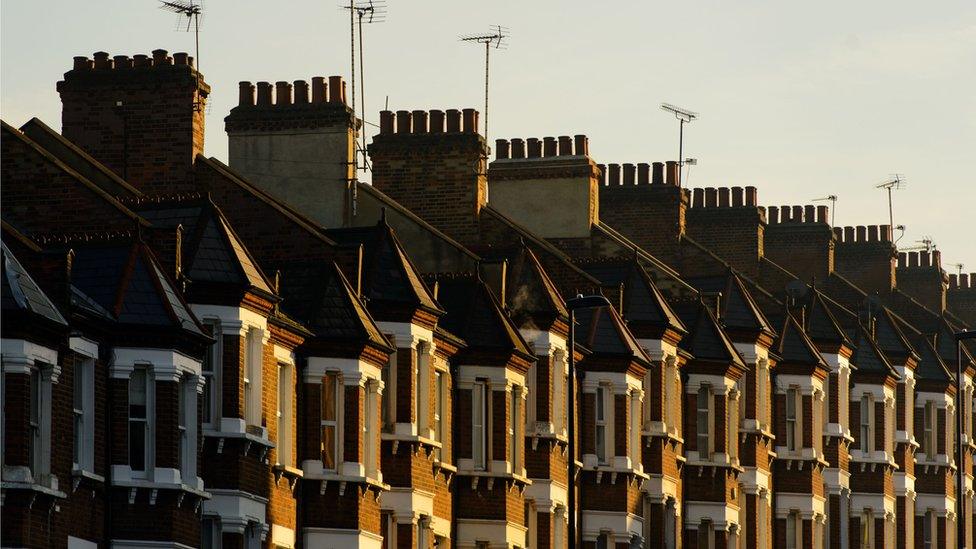'No-fault' evictions: Renters say stress is making them ill
- Published

Ruth says she has not been able to sleep properly since being evicted
In the past three years, some 227,000 private renters in England have had their tenancies ended with no explanation, a new YouGov poll has suggested.
The government says it is committed to banning the controversial practice of "no fault" evictions after an eviction ban was put in place during the pandemic, but ended in May 2021.
But campaigners, including homelessness charity Shelter, say ministers have made such promises before.
The BBC has been speaking to renters who have recently been hit with forced evictions.
'I've not been able to keep my food down'
Ruth, 51, who asked not to give her surname, was served a Section 21 "no fault" eviction notice last month, meaning her landlord did not need to give a reason for ending the tenancy.
Ruth believes the decision was made to take advantage of an increase in property prices in her part of Lancashire.
"It's caused so much stress," she says. "It's been making me sick. I've not been able to keep my food down or sleep properly."
Ruth has very specific requirements for a property due to spinal cord injuries, osteoporosis and a below-knee amputation.
She says she is now "constantly" scouring the private rental market for homes that are suitable for a wheelchair user.
Although the council was willing to help her, she says she has not qualified for appropriate accommodation offered by housing associations because she is too young.
Forced evictions should not be allowed to continue, says Ruth. "They just put people like me in a terrible position."
'The notice came out of the blue'
Jennifer, 38, says her family is desperately trying to find somewhere new to live having recently received a Section 21 notice "out of the blue".
She's been in her property in East Sussex for 15 years. The eviction came after her family complained about problems with mould and an extractor fan.
She describes current rental prices as "awful" and says the move will be particularly tough on her 14-year-old autistic son.
She believes there should be greater protection for renters who have done nothing wrong.
But she does recognise that there is a "balancing act", and sometimes evictions are necessary when renters cause damage to properties.
Scrapping Section 21 on its own could make it "impossible to take action against anti-social tenants", the National Residential Landlords Association (NRLA) have said.
In a statement, it accused the charity Shelter of "scaremongering" and called for a "fair and workable system for both tenants and landlords".
Other landlords who contacted the BBC said there were also occasions when they were forced to sell their properties out of financial need, making Section 21 notices a necessary tool.

Ryan wants more protection for renters - and more affordable housing too
No-fault evictions are like "get out of jail free cards" for landlords, argues 33-year-old Ryan.
His family was served a Section 21 notice at the start of March, meaning the deadline to leave their privately-rented home in Derbyshire will arrive in a matter of days.
They are on the waiting list for a council home. But with no decision yet, Ryan faces "stressful, depressing, agonising" uncertainty with his partner and their two-year-old son.
Ryan feels the government should do more - claiming that "nothing has happened" since a 2019 pledge to outlaw unfair evictions.
"But there's also more than can be done to make housing affordable," he adds, "so that people who are renting can afford to buy their home."
The government says it remains committed to taking action to help private tenants, including by tackling spiralling living costs.
A spokesperson said: "Our Private Rented Sector White Paper will set out reforms to make renting fairer for all, including by banning Section 21 'no fault' evictions as soon as possible.
"We are also providing a £22bn package of support to help households with rising costs. This includes putting an average of £1,000 more per year into the pockets of working families via Universal Credit and direct support for bills."
- Published27 April 2022

- Published18 March 2022

- Published28 May 2021
